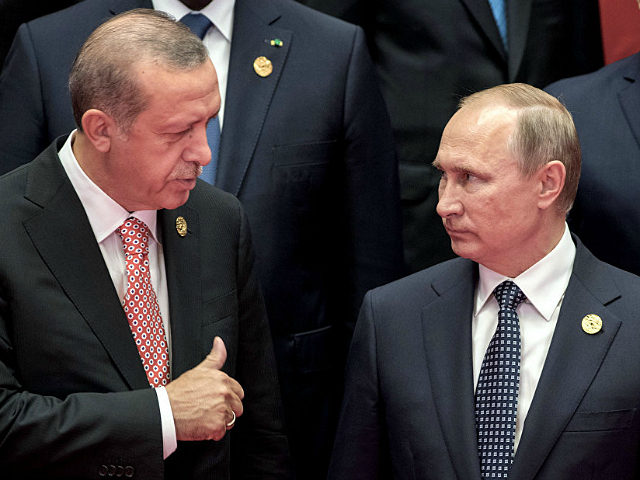Turkey doubled its Russian oil imports year-on-year over a period spanning January to August 2022, Reuters reported on Monday citing new data from the financial analyst platform Refinitiv Eikon.
“Turkey increased oil imports from Russia, including Urals and Siberian Light grades, beyond 200,000 barrels per day (bpd) so far this year compared to just 98,000 bpd for the same period of 2021,” the news agency reported on August 22.
“Turkey’s main refiners Tupras and Azerbaijan’s SOCAR’s STAR refinery significantly increased intake of Russian Urals and Siberian Light oil this year, while decreasing purchases of North Sea, Iraqi and West African grades,” data from Refinitiv Eikon showed on Monday.
Turkey has abstained from sanctioning Russia since the nation launched its latest war with neighboring Ukraine on February 24. The U.S. government led its political allies, including much of the European Union (E.U.), in imposing a raft of sanctions on Russian entities and companies hours after the conflict began. The anti-Russia sanctions campaign has continued to grow over the past six months.
The E.U. adopted a “sixth package of sanctions” against Russia on June 3 that included “a partial embargo on Russian oil,” the Center for Strategic & International Studies (CSIS) reported on June 8. “The sanctions will ban seaborne imports of Russian crude oil as of December 5, 2022, and ban petroleum product imports as of February 5, 2023.”
“Pipeline imports of crude oil and petroleum products will be exempt, in a compromise with EU member states like Hungary, Slovakia, and the Czech Republic, which depend on imports via the Druzhba pipeline,” CSIS noted of the June 3 sanctions package.
Turkish Deputy Finance Minister Yunus Elitas confirmed on August 20 to the U.S. Treasury that Ankara’s “position has not changed regarding the current processes and sanctions.” He referred to Turkey’s continued choice not to join the Washington-led financial sanctions campaign against Russia. Elitas added that Turkey “would not allow the breaching of sanctions by any institution or person.” The Turkish deputy finance minister made the remarks to his U.S. counterpart during a telephone call between the two parties. Elitas stressed during the phone call that Turkey maintains “deep economic and political relations” with Russia.
Turkish President Recep Tayyip Erdoğan told reporters in late March that he could not allow Ankara to join the Western sanctions campaign against Moscow because Turkey was too reliant on Russian oil and gas to make such an action feasible.
Turkey’s Hürriyet newspaper quoted Erdoğan as saying the following on March 25:
In terms of sanctions, we are studying certain UN guidelines, but let’s not forget that we cannot put aside our relations with Russia. You know, I explained this a long time ago, because today, if we take natural gas alone, about half of the natural gas we use comes from Russia.
Besides that, we are building our Akkuyu nuclear power plant with Russia. We can’t ignore that. When I told this to [French President Emmanuel] Macron, even he said that I am right. We have to protect this sensitivity, Firstly, I cannot leave my people to freeze in the winter, and secondly, I cannot completely reboot this industry of ours.
Erdoğan met with his Russian counterpart, Vladimir Putin, on August 5 in Sochi, Russia, for talks focused on continued economic cooperation between Ankara and Moscow. The two leaders held a closed-door, face-to-face meeting during which they were expected to “evaluate bilateral ties between the two countries, mainly focusing on the economy, trade, and energy that constitute the driving force behind Turkey-Russia relations,” Turkey’s Daily Sabah newspaper reported at the time.
“They will exchange views on the potential steps to enhance bilateral cooperation as well,” the newspaper noted.

COMMENTS
Please let us know if you're having issues with commenting.